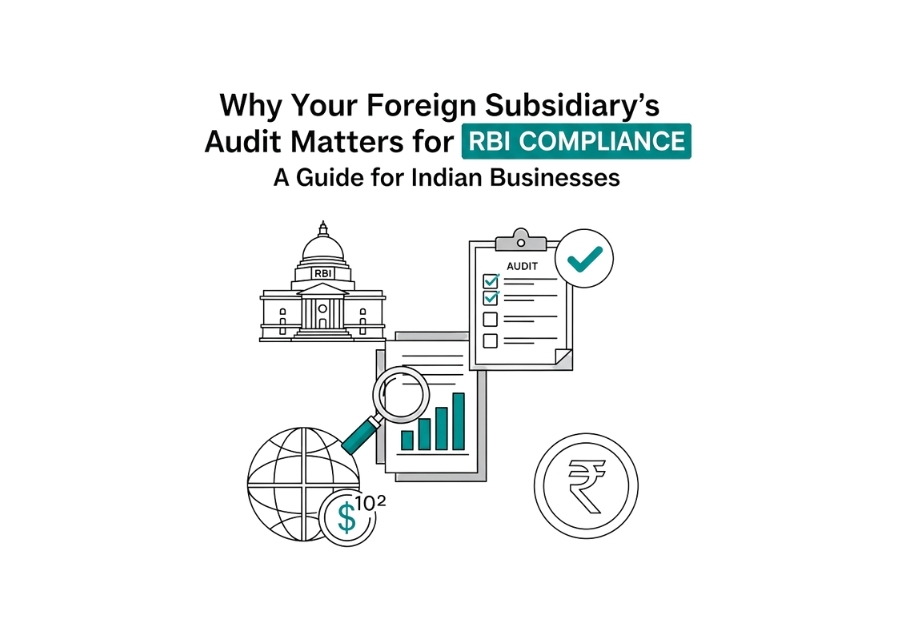Why Your Foreign Subsidiary’s Audit Matters for RBI Compliance
If you’re an Indian company with a presence abroad through a joint venture or subsidiary you’ve probably heard about the Annual Performance Report (APR) you need to file with the Reserve Bank of India. On paper, it seems like just another yearly report. But it’s not something to take lightly, especially if you want to stay on the right side of the RBI and FEMA regulations. The APR essentially tells Indian regulators how your overseas investment is performing. That includes financial health, ownership patterns, retained earnings, and whether the foreign entity is operating as declared. It’s mandatory each year, and poor documentation or missed filings can result in penalties or trigger deeper scrutiny. One crucial requirement is that this report be based on audited financials unless your investment is non-controlling and below 10% equity. And those audits aren’t just a rubber stamp. They require expertise.
It’s Not Just About Format It’s About Interpretation
Different countries follow different accounting standards. The way deferred tax, revenue recognition, or asset valuation is handled in one country may not align with Indian practices. And when the APR is filed, the RBI expects clarity. This is where a Certified Public Accountant (CPA) or host-country compliance expert comes in. They understand local financial reporting whether it’s US GAAP, IFRS, or something more regional and can ensure that your reports are translated accurately into terms the RBI will accept. It’s not enough to “just get it done.” The nuances matter, and getting them wrong can delay approvals or raise red flags.
Audits Build a Trail That the RBI Can Trust
The RBI isn’t only interested in profit/loss numbers it wants assurance that the data submitted is reliable and independently verified. A local audit offers that assurance. Even if your foreign jurisdiction doesn’t mandate an audit, having one done (or at least having the financials reviewed) by a qualified host-country professional strengthens your compliance posture. It shows that you take reporting seriously and are prepared for any questions down the line whether from regulators, banks, or potential investors.
Are You Exempt? Not Always That Simple
There are exemptions. If your investment abroad is passive defined typically as less than 10% equity and no control you may be allowed to file the APR with unaudited financials. But there’s a catch: these unaudited numbers must still be certified by your Indian statutory auditor or a Chartered Accountant. In reality, these exceptions aren’t loopholes, they’re narrow allowances. If the RBI later finds inconsistencies, the absence of an independent review could work against you. In most cases, it’s simply safer and cleaner to rely on professional validation.
The Takeaway
The Annual Performance Report isn’t a routine checkbox, it’s a critical part of maintaining compliant, transparent international operations. Partnering with a CPA or a qualified professional in the foreign jurisdiction ensures the financials you’re submitting are accurate, interpreted correctly, and meet the RBI’s standards.
Whether you’re scaling abroad or maintaining an existing setup, this is not an area where shortcuts pay off. A thoughtful investment in the right audit partner today can prevent delays, penalties, or lost opportunities in the future.
👤 Author:
Dr. Anil Gupta, Chairman
Connect Ventures Group of Companies
Specializing in cross-border structuring and RBI/FEMA regulations. Connect Ventures Inc is a US headquartered Global Compliance company for Cross Border Businesses helping businesses to register companies in 40+ Countries (including USA, UK, UAE, Singapore, Canada, etc), Taxation of Various Countries and secretarial compliance for host jurisdiction.


